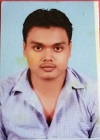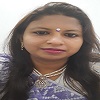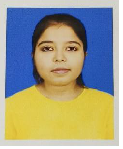Infrastructure
List of Application Software:
- Microsoft Visual Studio Professional
- Dev C++
- ORACLE
- JDK
- Electronics Workbench
- Apache Open Office 4.1.15
- EMU 8086
- CISCO Packet Tracer 7.3.0
- Python 3.11.4
- PHP 8.2.11
- Notepad++ 8.5.8
- Acrobat Reader 11
- Google Chrome 123
- WinRAR 7
DEPARTMENTAL INFRASTRUCTURE:
-
Spacious Classrooms:
-
The college boasts spacious classrooms conducive to learning.
-
Well-Equipped Computer Labs:
-
Three dedicated computer labs are fully air-conditioned and Wi-Fi enabled.
-
Computer labs houses over 205 machines with the latest hardware configurations and software installations.
-
Internet Connectivity and Access to Online Journals:
-
All labs are equipped with internet connectivity, providing access to online journals subscribed by the college.
-
Printing and Scanning Facilities:
-
Each lab is equipped with a sufficient number of printers and scanners to cater to student needs.
-
Safety Measures:
-
Ensuring student safety, every lab is equipped with fire extinguishers and other safety facilities to prevent accidents.
-
Departmental Virtual Library:
-
Students have access to a departmental virtual library, fostering a 24-hour learning environment.
-
SK MAIDUL ISLAM
Assistant Professor
Qualification
M.TECH in CSE, Ph. D. (Pursuing)
Experience
17 year 6 month 6 day
-
SATYAJIT SAHOO
Assistant Professor
Qualification
M.TECH in CSE
Experience
20 year 6 month 0 day
-
BIDISHA BERA
Assistant Professor
Qualification
B.TECH in CSE
Experience
17 year 0 month 15 day
-
AMRITA PRAMANIK
Assistant Professor
Qualification
M.TECH in CSE
Experience
8 year 5 month 0 day
-
SK SALAMUR RAHAMAN
Assistant Professor
Qualification
M.TECH in CSE
Experience
2 year 5 month 27 day
-
PRAJNA BHUNIA
Assistant Professor
Qualification
M.TECH in CSE
Experience
2 year 5 month 27 day
-
MOUSUMI GHOSH
Assistant Professor
Qualification
M.A. (English), MBA (HR)
Experience
15 year 7 month 2 day
-
PARTHA BISWAS
Assistant Professor
Qualification
M.Sc. in Mathematics, B.Ed.
Experience
2 year 5 month 16 day
-
SWARNALI PAUL MAITY
Assistant Professor
Qualification
B.TECH in CSE
Experience
3 year 7 month 24 day
-
SUMIT KUMAR MAITY
Assistant Professor
Qualification
B.TECH in CSE
Experience
3 year 7 month 25 day
-
PRIYANKA SEN
Assistant Professor
Qualification
B.TECH in IT
Experience
3 year 7 month 25 day
-
TARUNIMA CHATTERJEE
Assistant Professor
Qualification
B.TECH in CSE
Experience
3 year 7 month 25 day
Notice
-
23
Dec
2025 -
15
Nov
2025 -
16
Sep
2025 -
16
Sep
2025 -
01
Jun
2025 -
26
May
2025 -
03
Dec
2024 -
03
Dec
2024 -
21
Nov
2024 -
21
Nov
2024 -
25
Sep
2024 -
20
Feb
2024 -
08
Oct
2022 -
08
Aug
2022 -
31
Mar
2022 -
14
Mar
2022 -
02
Dec
2019 -
02
Dec
2019 -
02
Dec
2019 -
04
Oct
2019 -
04
Oct
2019 -
04
Oct
2019 -
21
May
2019 -
19
Mar
2019 -
27
Dec
2018 -
03
Dec
2018 -
27
Nov
2018 -
27
Sep
2018 -
19
Mar
2018
Seminar
-
15
Feb
2024 -
15
Sep
2023 -
11
Jan
2023 -
04
Jan
2021 -
28
Dec
2020 -
15
Dec
2020 -
01
Dec
2020 -
02
Sep
2020 -
13
Jul
2020 -
10
Feb
2020 -
07
Feb
2020 -
24
Sep
2019 -
12
Sep
2019 -
08
Aug
2019 -
06
Feb
2019 -
04
Jan
2019 -
05
Sep
2018 -
04
Jul
2018 -
04
Apr
2018 -
02
Apr
2018 -
05
Feb
2018 -
02
Feb
2018 -
25
Sep
2017 -
08
Aug
2017
Download
-
29
Jun
2023 -
29
Jun
2023 -
28
Jun
2023 -
28
Jun
2023 -
28
Jun
2023 -
28
Jun
2023
Course Details
In the last twenty years, computer science has grown from a somewhat obscure academic discipline into one of the driving forces of technological advance. From scientifically used large super computers to personally used little Smartphone lying in our pockets, computers mark their presence everywhere. There is no stream of any working sector that still executes any of its processes without computer systems.
Diploma in Computer Science Course Highlights :
|
Type of Course |
Diploma |
|
Duration of Course |
3 years |
|
Examination Type |
Semester wise |
|
Course Fee |
Rs. 1,33,000 for JEXPO Quota Rs. 1,69,000 for Management Quota |
|
Average annual salary after completing the course |
INR 1,20,000 to 2,40,000 |
|
Top Recruiting Companies |
WIPRO, L&T, L&T INFOTECH, INFOSIS, SUNBYT TECHNOLOGYS, DWEB CONSULTANCY, PRASARNET, NIIT, OGMA, ARDENT, POLYBOND, TAKATA. |
|
Job Positions in Industry |
Telecom engineer, Software developer, Tech Support, Network expert etc. |
|
Job positions in Education Sector |
Lab Instructor |
Admission Process & Criteria:
Direct Admission (25% of Total Intake):
- Passed in Secondary (10th Std) or its equivalent examination with English, Physical Science and Mathematics and other criteria as per norms of WBSCT&VE&SD
Admission through Central Counselling (75% of Total Intake):
- JEXPO -2025 Rank and central counseling conducted by WBSCT&VE&SD.
Admission in 2nd Yr (3rd Sem) Lateral Entry (10% of Total Intake):
- VOCLET-2025 Rank and central counseling conducted by WBSCT&VE&SD.
Age Limitation: No upper age limit. The candidate should not be born after 01.07.2010
Diploma in Computer Science Course Syllabus:-
|
Semester I |
Semester II |
|
|
|
Semester III |
Semester IV |
|
|
|
Semester V |
Semester VI |
i) Mobile Computing ii) Advanced Computer Network
i) Theory of Automata ii) Fundamentals of AI
i) Computer Graphics ii) Digital Image Processing
|
i) Data Sciences: Data Ware housing & Data Mining, ii) Cloud Computing.
i) Engineering Economics and ii) Project Management
i) Machine Learning ii) Web Designing
|
Vision of the Department
To offer quality education in the field of science, technology, and management to accomplish diverse necessities related to the profession in Computer Science & Technology.
Mission of the Department
Mission 1: To equip students with essential skills and knowledge for a successful professional career in Computer Science & Technology, empowering them to contribute positively to society..
Mission 2: To foster a solid technical foundation in Computer Science and Technology through an industry-relevant curriculum, hands-on learning, and modern infrastructure, while encouraging a commitment to lifelong learning.
Mission 3: To instill ethical values and professional integrity in students, preparing them to adapt responsibly and effectively in the dynamic landscape of engineering and technology.
The strengths of the Computer Science Course Department are as follows:
-
The Computer Science & Technology Department have skilled and experienced faculty members.
-
Computer laboratories of the Computer Science & Technology Departmentare modern and well equipped.
-
Most of our faculty members publish and present research papers in various recognized National and International journals and conferences.
-
The environment for teaching the learning process is excellent in the Computer Science & Technology Department.
-
Outcome based teaching-learning process is followed by the Computer Science & Technology Department.
-
The record of recruitment of Computer Science & Technology Departmentin various reputed companies is remarkable.
-
For the benefits of our students, the Computer Science & Technology Department Conducts Soft Skill development and Technical Skill development programs with the help of Training and placement Cell.
-
In coordination with the Training and placement Cell, Computer Science & Technology Departmentprovides summer training to the students in various reputed Training Industries.
-
For uplift of knowledge of faculty members and students The Computer Science & technology Department organises various Conferences and workshops in recent trends of Computer Science.
PROGRAM EDUCATIONAL OBJECTIVES (PEOs):
PEO 1: Students will possess foundational knowledge in Computer Science and Technology, enabling them to effectively analyze and solve technical problems in various areas of Computer Science, aligning with industry practices.
PEO 2: Students will be equipped to adapt to new and emerging technologies, engaging in continuous learning to advance their technical skills and remain competitive in the workforce.
PEO 3: Students will demonstrate strong ethical values, effective communication, and teamwork, preparing them to work responsibly and collaboratively in diverse professional environments and contribute positively to society.
PROGRAMME OUTCOMES (POs):
PO1: Basic and Discipline specific knowledge: Apply knowledge of basic mathematics, science and engineering fundamentals and engineering specialization to solve the engineering problems.
PO2: Problem analysis: Identify and analyse well-defined engineering problems using codified standard methods.
PO3: Design / development of solutions: Design solutions for well-defined technical problems and assist with the design of systems components or processes to meet specified needs.
PO4: Engineering Tools, Experimentation and Testing: Apply modern engineering tools and appropriate technique to conduct standard tests and measurements.
PO5: Engineering practices for society, sustainability and environment: Apply appropriate technology in context of society, sustainability, environment and ethical practices.
PO6: Project Management: Use engineering management principles individually, as a team member or a leader to manage projects and effectively communicate about well-defined engineering activities.
PO7: Life-long learning: Ability to analyse individual needs and engage in updating in the context of technological changes.
PROGRAM SPECIFIC OUTCOMES (PSOs):
PSO 1: Apply fundamental knowledge of basic science, mathematics and computing and engineering to design effective computer hardware architectures and software tools.
PSO 2: Understand professional ethics to apply analytical and problem solving skills to further analyze and develop solutions to the complex societal problems.
PSO 3: Develop interpersonal, managerial and soft skill to groom the students as a successful professional or entrepreneur life-long.













